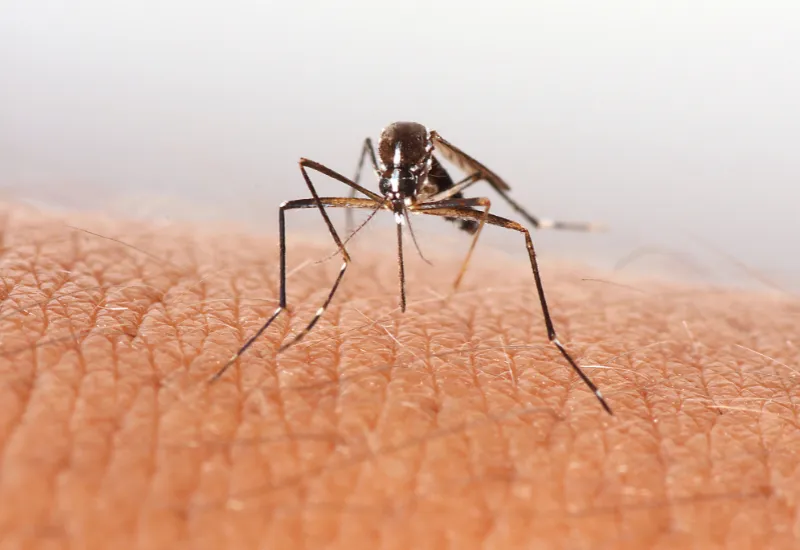Mosquitos are important in the disease-carrying process. Their saliva, which is transferred to a host when they bite them, can make a host very itchy and can cause discomfort in that area.
In some cases, mosquitos can also ingest pathogens while biting and then transfer those pathogens to future hosts. This allows mosquitoes to spread many diseases and cause many people harm.
It is estimated that mosquitoes cause almost 700,000 deaths per year. One study even claims that half of the people who have died on this earth have died because of mosquito-related diseases.
In countries that are developing and do not have access to clean water, mosquitoes can become a huge issue especially around the rainy season. There are certain means that one can use to ensure that mosquitoes do not transfer diseases amongst the population. This blog will guide you through the multiple diseases that are spread all over the world due to mosquitoes.
What Diseases are Spread by Mosquitoes?
It has already been established that multiple diseases can be spread with the help of mosquitoes. We will now list some of them and then briefly provide explanations as well.
1. Malaria
This disease is mainly spread with the help of a female mosquito. The bite from the particular type of female mosquito would then introduce some parasites in the person's body which will be transferred with the help of the mosquito's saliva.
These parasites would then reproduce and mature in the person’s liver and therefore cause a series of complications for them. Some symptoms of malaria include fever, fatigue, vomiting, and severe headaches.
2. Yellow Fever
Similar to malaria, yellow fever is spread from person to person through the female mosquito which carries the yellow fever virus within her. The disease is spread when the female transfers the virus to the host with the help of her bite, exposing the host to her saliva. The disease then spreads inside the hosts’ body and therefore causes issues for them.
Some of the symptoms of yellow fever include body aches, fever, headaches, chills, and a loss of appetite. In more severe cases of yellow fever, the patient also experiences abdominal pain, which is a sign of kidney and liver issues. This can also cause the patient to have yellow skin, hence the name, yellow fever. Luckily, a vaccine for this disease is readily available.
3. Chikungunya
Chikungunya is an infection that is caused due to the chikungunya virus and is once again, spread between people due to two particular types of mosquitoes. The symptoms of this disease include fever and joint pain commonly, however other symptoms can include muscle pain, joint swelling, and even a fever. The death rate for this disease is 1 in 1000 people.
4. West Nile Disease
West Nile Disease is spread not only through the help of mosquitoes but it is spread with a combination of mosquitoes and birds. West Nile disease is an RNA strand that contains the west Nile virus and contains a combination of the Zika virus, dengue, and even yellow fever.
5. Dengue Fever
The symptoms of the dengue virus include fever, headache, muscle pain, joint swelling, and also a rash. Dengue fever is spread when mosquitoes that contain the dengue virus bite a patient.
6. Zika Virus
Zika virus originates from a tropical virus in Uganda and is similar to yellow fever and dengue. Similar to them the virus is spread with the help of a particular type of mosquito and the symptoms are very similar to that of the yellow virus and dengue fever.
Conclusion
All of these are some examples of the types of viruses and diseases that can be spread with the help of mosquitoes. Therefore, one should take preventive measures such as wearing mosquito repellant and avoid having standing water anywhere.
Moreover, there are lab tests that one should take to find out whether they do have any disease after a suspected mosquito bite.












